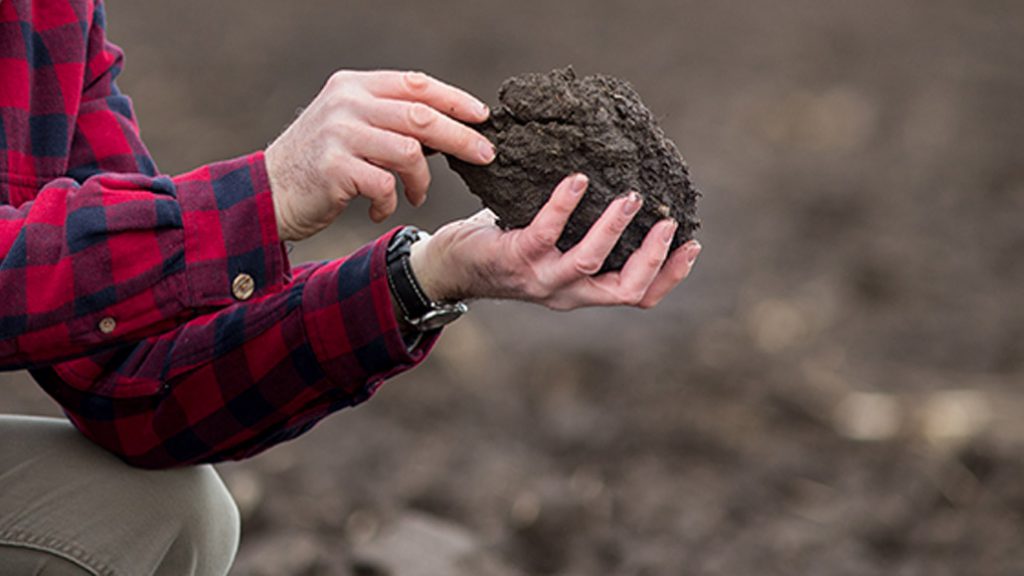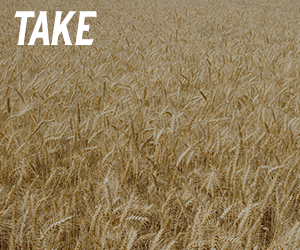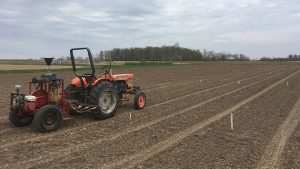Soil Test Manager
UNDERSTAND YOUR RESULTS

CONDUCTING REGULAR SOIL tests is an important management tool in a farmer’s toolbox. Soil tests can provide a wide range of information to monitor soil fertility, identify potential nutrient deficiencies, and to make fertilizer decisions.
While a soil sample test can return a lot of valuable information, it can be challenging for some farmers to interpret and analyze the data to inform and implement best-management strategies. That is where a new web-based app, developed by the Ontario Soil and Crop Improvement Association (OSCIA), comes in. The Soil Test Manager, launched in February 2020 at the OSCIA annual conference, is a user-friendly app that can help farmers better understand their soil test and fertilizer recommendations from the Ontario Ministry of Agriculture, Food and Rural Affairs (OMAFRA).
“The motivation behind creating this tool was to make it easier to access Ontario fertility recommendations for both field crops and horticultural crops,” says Jake Munroe, OMAFRA’s soil management specialist for field crops. Much of the information found in the Soil Test Manager app is available in OMAFRA publications such as the Agronomy Guide for Field Crops (Publication 811), but Munroe notes that it can be time consuming and challenging for farmers to flip through different sections and “look-up” tables to find and calculate the information that they need.
“All of that information is now in one accessible, easy to use, online tool that a farmer can use on their phone, their tablet or their desktop,” says Munroe. The Soil Test Manager is also regularly updated, which means that farmers will always have the most up-to-date recommendations and advice available to them.
USING THE APP
The app is free to use and is accessed by visiting soiltestmanager.ca. In just a few minutes, a grower can enter the data from an OMAFRA-accredited soil test, select from 15 field crops and 33 horticulture crops, and then with the click of a button receive application recommendations for phosphorus, potassium, magnesium, zinc, and nitrogen. The results can then be sent by email in PDF format.
Munroe says that the intent of the app is to educate farmers and provide a starting point for decision making. “It’s not meant to replace the expert advice of a certified crop advisor, but as an educational tool to help them improve their level of understanding and to have a more informed conversation. There is a real emphasis with the tool on education and interpretation of soil test results.”
To help farmers better understand the various values reported on a soil test, the app features a section called “know your soil test” that explains the various values and measurements found on a soil test report, and advice on how to take a soil test to get optimal results.
4R SCORE
The 4Rs of nutrient stewardship — applying the right source, at the right rate, at the right time, and in the right place — is a concept that is gaining a lot of traction in the industry as farmers are becoming more aware of the philosophy and retailers are becoming 4R certified. The Soil Test Manager app features a 4R stewardship calculator, where growers can input the values related to their nitrogen and phosphorus application for corn, horticulture, and vegetable crops. They are then given a score — from one star to four — to help them evaluate their current practices and to see how they stack up against the principles of 4R.
Munroe says that a four-star rating is the best rating, which shows that the nutrient application is maximizing crop uptake and minimizing environmental risk of run-off. “If you get a zero or one star, it means that the nutrient is applied in a way that’s likely going to result in a lot of environmental loss, but it’s also going to be quite inefficient and not maximize crop uptake,” he says.
EVERYONE CAN BENEFIT
Munroe believes that the Soil Test Manager is a useful tool for all farmers, from the farmer who soil tests for the first time to the ones who have been using soil tests for years.
“We want to encourage farmers who aren’t soil testing, to show them that it’s not rocket science, it’s relatively straightforward to interpret the results and to make management decisions based on the soil test results,” he says. “For those who regularly soil test, they can go back and look at recent results and better understand what they mean in terms of nutrient management, fertilizer rates… or manure management.”
The Soil Test Manager is funded by the Canadian Agricultural Partnership, a five-year federal-provincial-territorial initiative that encourages innovation, competitiveness, and sustainability in Canada’s agriculture and agri-food sector. •



























